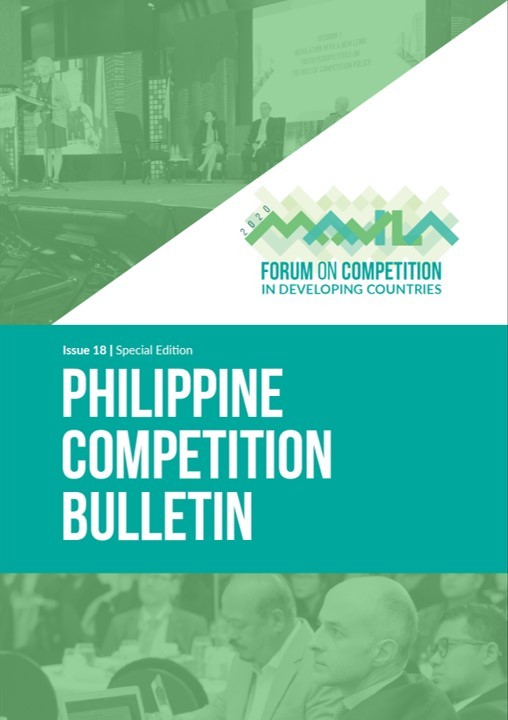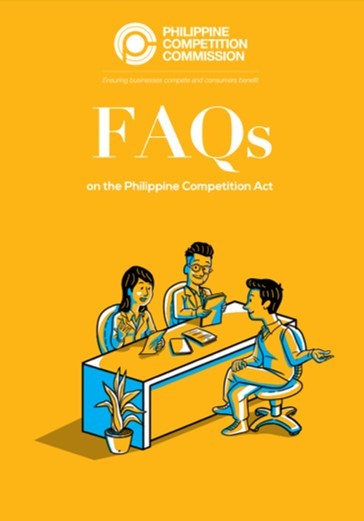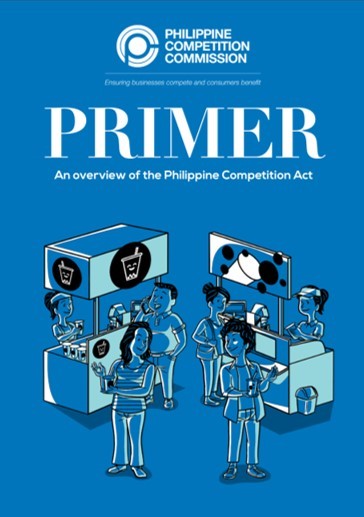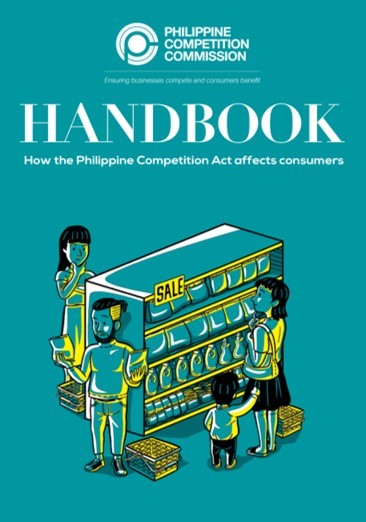DAY 1 | FEBRUARY 3, 2021
1:30 – 2:30 PM (60 mins)
Media Briefing
2:30 – 2:40 (10 mins)
Opening Remarks
Arsenio Balisacan, Chairperson, Philippine Competition Commission
2:40 – 2:55 (15 mins)
Message from the Philippine Government
Karl Kendrick Chua, Socioeconomic Planning Secretary and Director-General, National Economic and Development Authority
2:55 – 3:25 (30 mins)
KEYNOTE PRESENTATION
BEYOND RECOVERY: BUILDING BACK BETTER WITH COMPETITION POLICY
Speaker: Ori Schwartz, Head, Competition Division, OECD
The COVID-19 pandemic has derailed the socio-economic achievements of many developing countries and exposed their vulnerabilities. We take a step back to re-examine how competition policy can become a more effective tool so that the benefits of the economic recovery will accrue to marginalized sectors and to draw lessons from the crisis to make developing economies more inclusive, resilient, and sustainable.
- What were the major development challenges before the pandemic and how has the pandemic revealed underlying weaknesses and exacerbated pre-existing problems?
- What role has competition policy played in achieving inclusivity, resilience, and sustainability before the pandemic and how has this role changed? What is the interplay of competition with other policy levers in achieving these development goals?
- How can competition policy contribute to building a “Better Normal?” What are the priorities for competition enforcement and advocacy in the recovery era?
3:25 – 3:35 (10 mins)
Q&A
3:35 – 4:15 (40 mins)
PLENARY SESSION 1
ROBUST MERGER CONTROL FOR INCLUSIVE, DYNAMIC, AND RESILIENT MARKETS
Moderator: R. Ian McEwin, Honorary Professor, ANU College of Law
Panelists:
- Sherwin Gatchalian, Senator, Senate of the Philippines
- Ruben Maximiano, Senior Competition Expert and Asia- Pacific Regional Manager, Competition Division, OECD
- Chandra Setiawan, Commissioner, Indonesia Competition Commission
- Alain Charles Veloso, Partner, Corporate & Commercial/M&A Practice Group, Quisumbing Torres, a member firm of Baker & McKenzie International
Mergers have a permanent structural impact on markets that will be felt long after a recession is over. During crises, mergers are seen as quick solutions to achieve economies of scale and efficiencies, especially for failing and struggling firms. As guardians of fair and efficient market operation, competition authorities must balance effective emergency responses with the risk of emerging from the crisis with markets plagued by increased concentration and stifled dynamism. This panel discusses how competition authorities across Asia can tackle this balancing act, in pursuit of a robust, pro- competitive post-crisis economy.
- How does merger control contribute to a more inclusive, resilient, and sustainable economy?
- How have the decision making and powers of competition authorities changed during the pandemic? How have pandemic-related legislation and policies affected merger control?
- What might be the anticipated effects of these changes to the post-crisis economy?
- What have been the outcomes of effective merger control, or the lack thereof, in past crises? What lessons may we apply to the COVID-19 recovery efforts?
4:15 – 4:25 (20 mins)
Q&A
4:25 – 4:30 (5 mins)
Break
4:30 – 5:10 (40 mins)
PLENARY SESSION 2
REINFORCING ANTI-CARTEL AND ABUSE OF DOMINANT POSITION REGIMES
TO BUILD BACK BETTER ECONOMIES
Moderator: El Cid Butuyan*, Former PCC Commissioner & Harvard Law Lecturer (currently with UNICEF as Director and Chief Ethics Officer) * Speaking in his personal capacity
Panelists:
- Kentaro Doi, Deputy Director, International Affairs Division, Japan Fair Trade Commission
- Jesusa Joyce Cirunay, Director, Center for Drug Regulation and Research, Food and Drug Administration
- Yuli Wahyuningtyas, Associate Professor, Faculty of Law, Atma Jaya Catholic University
- Teodoro Padilla, Executive Director, Pharmaceutical & Healthcare Association of the Philippines
A resilient and inclusive economy is characterized by a fair and just competition landscape. In a competitive setting, market players behave fairly in conducting their businesses and use legal innovative means to attract customers. Competition policy ensures that this setting is maintained such that market efficiencies contribute to rebuilding economies ravaged by the pandemic. Cartel investigations and going after anti-competitive conducts form part of competition enforcement as an indispensable pillar of antitrust law since it immediately corrects market inefficiencies caused by anti-competitive practices. This session explores the role of competition enforcement in remedying the inefficiencies and inequalities exacerbated by the pandemic.
- What changes in the competition landscape during the pandemic further strengthened market players’ ability and incentive to commit anti-competitive practices (for example, in the healthcare sector)?
- Have there been notable changes in market conditions because antitrust implementation had to adapt to the pandemic-era environment? Did the pandemic serve a purpose in cementing the foothold of cartels and other erring entities?
- What are the key trends in antitrust investigations that were implemented during the pandemic that are likely to be adopted in the longer term? What lessons can competition authorities get from COVID-19 that would help them rethink or reorganize their respective enforcement arms?
- How will these lessons and reorganization activities generally contribute to our bid for more resilient and inclusive economies?
5:10 – 5:30 (20 mins)
Q&A
DAY 2 | FEBRUARY 4, 2022
1:30 – 1:40 (10 mins)
Recap of Day 1
1:40 – 2:20 (40 mins)
PLENARY SESSION 3 COMPETITION POLICY AND MSMES: ENSURING INCLUSIVE RECOVERY
Moderator: Amabelle Asuncion, Lecturer, UP College of Law and Former PCC Commissioner
Panelists:
- Michael Schaper, Chairman, Shadow Economy Advisory Forum, Australian Government and Senior Visiting Fellow, ISEAS-Yusof Ishak Institute
- Looi Teck Kheong, Head of Competition, Consumer Protection and IPR Division (CCPID), ASEAN Secretariat
- George Barcelon, President, Philippine Chamber of Commerce and Industry
- Thuta Aung, Commissioner, Myanmar Competition Commission
Mobility restrictions have forced many MSMEs to cease or reduce operations. While stimulus programs are available to mitigate the economic impact of the pandemic, access to them has been skewed toward bigger businesses. A level playing field grants MSMEs market access on fair terms and creates incentives for innovation. This supports MSMEs’ role of facilitating market access and providing employment to those who are most vulnerable to the long-term socioeconomic effects of the pandemic. As developing economies emerge from the pandemic, this session aims to tackle how competition stakeholders can ensure the recovery ecosystem is built to help MSMEs overcome perennial gaps and challenges.
- What is the impact of the pandemic on the MSME sector, as shown in measures of trade, investment, and innovation? How have the parameters of competition changed in the short term and long term?
- How does assistance to MSMEs compare to the stimulus and support packages targeted towards big businesses? How have MSMEs responded to policies and programs intended for their sector’s recovery? What are the challenges to the full and successful implementation of such programs?
- What are the key drivers of MSME recovery? How must regulators approach competition enforcement in light of these needs?
- What are the prospects and channels for multi-sectoral cooperation? How can we ensure fair terms and competitive processes are upheld?
2:20 – 2:40 (20 mins)
Q&A
2:40 – 3:20 (40 mins)
PLENARY SESSION 4
THE COMPETITION LANDSCAPE AND DIRECTION OF REGULATION IN DIGITAL MARKETS
Moderator: Johannes Bernabe, Commissioner, Philippine Competition Commission
Panelists:
- Herbert Fung, Senior Director, Business & Economics Division, Chief Data Officer, Competition and Consumer Commission of Singapore
- Julian Wright, Lim Chong Yah Professor of Economics, National University of Singapore
- Pierre Horna, Legal Affairs Officer, Competition and Consumer Policies Branch, United Nations Conference on Trade and Development (UNCTAD)
The online-to-offline delivery of goods and services, including remote access to education and employment opportunities, have depended on digital platforms during the height of the pandemic and well into the era of recovery. There is broadening but still unequal access to digital products. Competition advocates therefore strive to uphold consumer welfare and the competitive process as markets are reshaped by digital developments. In view of the cross-border presence and effects of digital transformation and innovation, collaboration among competition authorities, some of which have enacted specialized legislation and guidelines, may prove crucial in ensuring effective and consistent enforcement. Since developing markets comprise vast markets both on the demand side and at the cutting edge of digital innovation supply, this session explores how competition enforcement in digital markets can be tailored to their specific context and needs.
- What are the latest developments in regulatory reform and enforcement action relative to digital markets?
- How have competition issues related to the growth and development of digital markets played out in developing countries? What are the features and roles of digital markets in developing economies, particularly during the pandemic, that warrant specialized attention?
- What has been the effect of the pandemic on the progress of digital markets and technologies in developing economies?
- How can competition authorities and other regulators implement cross-border cooperation in handling cases and issues in the digital and big-tech sphere?
3:20 – 3:40 (20 mins)
Q&A
3:40 – 3:45 (5 mins)
Break
3:45 – 4:15 (40 mins)
PARALLEL SESSION 1
COMPETITION ENFORCEMENT AND INVESTIGATIONS IN THE NEW NORMAL
(SPECIAL CLOSED SESSION)
Note: To encourage more candid discussion, this parallel session will be exclusive to participants from competition authorities. Non- competition authority participants may join Parallel Session 2: Competition Economics for Developing Countries: Challenges and Opportunities.
Moderator: Orlando Polinar, Director, Competition Enforcement Office, Philippine Competition Commission
Panelists:
- Chomkwan Ide, Director of Fact-finding Division, Trade Competition Commission of Thailand
- Mohd Hasbullah Mohamad Faudzi, Senior Assistant Director, Investigation and Enforcement Division,
Malaysia Competition Commission - Kenneth Tanate, Executive Director, Philippine Competition Commission
The constraints of the pandemic have pushed firms to change their ways of business. Likewise, competition authorities must adapt the ways competition enforcement and investigations are conducted. This session aims to be an exchange of best practices among representatives from a diverse set of competition regulating institutions that have been actively engaged in enforcement activities even amidst the continuously evolving pandemic situation in their respective jurisdictions.
- What are the main enforcement challenges and issues that have arisen in different jurisdictions? How have competition authorities responded to them?
- Which practices became inappropriate or ill-suited to the pandemic situation?
- Which adjustments could be useful to retain even in the post-COVID landscape?
4:15 – 4:35 (20 mins)
Q&A
3:45 – 4:15 (40 mins)
PARALLEL SESSION 2
COMPETITION ECONOMICS FOR DEVELOPING COUNTRIES: CHALLENGES AND OPPORTUNITIES
Moderator: Tristan A. Canare, Chief, Economic Investigation Division, Economics Office, Philippine Competition Commission
Panelists:
- Theerawat Thipparat, Director of Merger Review Division, Trade Competition Commission of Thailand
- Ismail Faruqi Abdullah, Senior Assistant Director, Business and Economics Division, Malaysia Competition Commission
- Deswin Nur, Head of Public Relations and Cooperation, Indonesia Competition Commission
Economic research is a vital component of an effective competition enforcement and policy advocacy regime. However, the challenges for economic research are more profound in developing economies given constraints like the lack of funding and technical capacity, newly- emerging appreciation and support for research and evidence-based decision making, and the unavailability of data. This session aims to be a platform for the sharing of best practices and innovative solutions among practitioners who regularly deal with the unique challenges for economic research in developing countries, as applied to competition policy.
- What are the main research challenges and issues that competition authorities in developing countries face?
- What innovative solutions have competition authorities taken in the face of limited funding, lack of technical capacity, and data issues?
- How do we mainstream the consideration of competition principles, as well as a culture of evidence-based policy and decision making, in the whole of government?
- What improvements can be done in terms of institutional design to address the various challenges in applying economic research in competition enforcement and advocacy?
4:15 – 4:35 (20 mins)
Q&A
4:35 – 4:45 (10 mins)
Closing Remarks
Macario de Claro, Jr., Commissioner, Philippine Competition Commission
4:45 – 5:15 (30 mins)
NETWORKING ACTIVITY
Opportunity for exchange among participants beyond the activity
OPENING REMARKS
Arsenio Balisacan
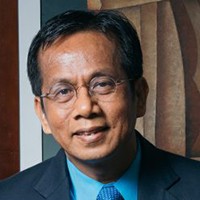
Chairperson Arsenio M. Balisacan is an economist with extensive high-level policymaking practice and a well-recognized expert in Asia on economic development, inequality, poverty, antitrust (competition policy), and the political economy of policy reforms.
A member of the regular faculty of the University of the Philippines School of Economics for over three decades, Professor Balisacan is serving as the first Chairperson of the Philippine Competition Commission. Before this appointment, he was Socioeconomic Planning Secretary and, concurrently, Director-General of the National Economic and Development Authority (NEDA) in 2012-2016. As NEDA Director-General, he served as Board Chairman of the Philippine Institute for Development Studies and as the first Board Chairperson of the Philippine Statistics Authority and the Public-Private Partnership Center of the Philippines.
Previous to his Cabinet appointment, he was Dean of the UP School of Economics, Director-Chief Executive of the Southeast Asian Regional Centre for Graduate Study and Research in Agriculture (SEARCA), and Undersecretary for Policy and Planning of the Department of Agriculture. Before joining the UP faculty in 1987, he was Research Fellow at the East-West Center in Honolulu and Economist at the World Bank in Washington, D.C.
He has authored and co-edited seven books and published, both locally and internationally, close to 100 academic papers and book chapters on various development issues, particularly in the Philippines and East Asia. His papers have appeared in, among others, Economics Letters, World Development, Review of World Economics, and Economic Development and Cultural Change. He founded—and served as editor in 2004-2016 of—the Asian Journal of Agriculture and Development.
He is a lifetime Member-Academician of the National Academy of Science and Technology (NAST Philippines), the country’s top peer-elected body serving as principal adviser to the nation on science, technology, and innovation for national development.
Chairperson Balisacan pursued his Ph.D. in Economics from the University of Hawaii, MS in Agricultural Economics from the University of the Philippines Los Baños, and B.S. in Agriculture (magna cum laude) from the Mariano Marcos State University.
MESSAGE FROM THE PHILIPPINE GOVERNMENT
Karl Kendrick T. Chua
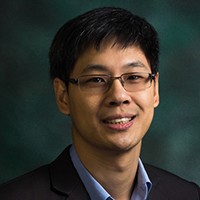
Karl Kendrick T. Chua is Socioeconomic Planning Secretary and Director-General of the National Economic and Development Authority.
Prior to his appointment, he was Undersecretary for the Strategy, Economics, and Results Group in the Department of Finance (DOF). In this capacity, he helped the government implement its ten-point socioeconomic agenda by ensuring equitable and sustainable financing through the Comprehensive Tax Reform Program. Prior to joining the government, he was the World Bank’s senior country economist for the Philippines. In this capacity, he advised the government on strategies and policies to attain more inclusive growth. He was with the World Bank for 12 years from 2004 to 2016.
Secretary Chua completed his MA in economics in 2003 and PhD in economics in 2011 at the University of the Philippines School of Economics.
Prior to joining the World Bank, he was assistant professorial lecturer of mathematics and economics at the Ateneo de Manila University, where he also completed his BS in Management Engineering in 2000. He was a consultant for several local and development partner-funded projects in economic and fiscal policy.
Chua was named one of the Ten Outstanding Young Men and Women (TOYM) in January 2019 by the Junior Chamber International (JCI) Philippines.
KEYNOTE PRESENTATION
BEYOND RECOVERY: BUILDING BACK BETTER WITH COMPETITION POLICY
Ori Schwartz
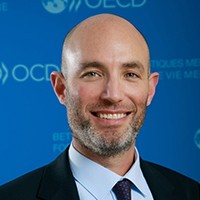
Ori Schwartz was appointed Head of the Competition Division at the OECD in October 2021. Prior to joining OECD, he was the Chief Legal Counsel at the Israel Ministry of Health where he served from July 2018 to September 2021. He also served as lecturer at the Hebrew University of Jerusalem from October 2016-July 2018 where he taught the Regulation of concentrated markets at the university’s law faculty.
Prior to this, he worked at the Israel Competition Authority where he served in different capacities: Junior Lawyer from January 2007-June 2009, Team Manager from July 2009-July 2011 and Chief Legal Counsel from August 2011-June 2018.
He received his European Masters in Law and Economics at the University of Hamburg, his Masters of Law, Bachelor of Arts in Philosophy, and Bachelor of Laws at The Hebrew University of Jerusalem.
PLENARY SESSION 1
ROBUST MERGER CONTROL FOR INCLUSIVE, DYNAMIC,
AND RESILIENT MARKETS
PLENARY SESSION 2
REINFORCING ANTI-CARTEL AND ABUSE OF DOMINANT POSITION REGIMES TO BUILD BACK BETTER ECONOMIES
PLENARY SESSION 3
COMPETITION POLICY AND MSMES:
ENSURING INCLUSIVE RECOVERY
R. Ian McEwin
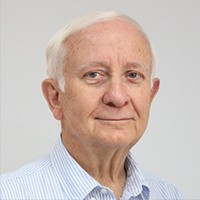
R. Ian McEwin is an Honorary Professor at ANU College of Law.
He completed his PhD in economics at Australia National University (ANU) on the economics of tort law. He was later appointed to the Faculty of Business at the University of Chicago-George Stigler’s Centre for the Study of the Economy and the State.
He was a Senior Research Fellow at the Centre of Excellence Policy Studies Centre where he taught competition law at both undergraduate and postgraduate levels. He subsequently completed a law degree at ANU and served as foundation Director of the Centre for Law and Economics at ANU.
In 2002 he was recruited by the Singapore Government (Ministry of Trade & Industry) to work for two years helping with the drafting of the Singapore Competition Act and the setting up of the Competition Commission of Singapore. While at MTI he was a member of the Singaporean negotiating team on competition with the United States and South Korean free-trade negotiations. Ian was subsequently appointed Assistant Chief Executive (designated Chief Economist) with the Singapore Competition Commission.
For the next 10 years Ian was a Visiting Professor of Law at the National University of Singapore and Chulalongkorn University in Bangkok and the Khazanah National Chair of Regulatory Studies at the University of Malaya. In the past few years, he has also taught competition economics to judges in Asia with George Mason Law School’s Global Antitrust Institute.
El Cid Butuyan*
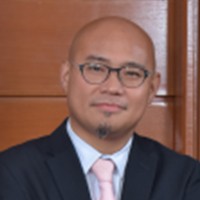
El Cid (Cid) Butuyan served in the public sector in the Philippines as the inaugural Antitrust Commissioner of the Philippine Competition Commission. He was a member of the Law Faculty at Harvard Law School and served multiple terms as Co-Chair of the American Bar Association (ABA) International Criminal Justice Committee.
He assumed his current duties as UNICEF Director and Chief Ethics Officer in NYC in 2021. He spent over fifteen years at the World Bank in Washington where he led on integrity and legal issues. He also worked as the Integrity Lead in the Green Climate Fund and held an assignment in the Asian Infrastructure and Development Bank.
Cid is a graduate of Harvard Law School and the University of the Philippines.
* Speaking in his personal capacity
Amabelle Asuncion
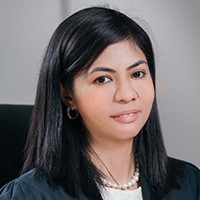
Atty. Asuncion is a former Commissioner of the Philippine Competition Commission with extensive experience in the private and public sectors.
She has served as executive director for the Senate Oversight Committee on Climate Change, Senate legislative officer, and adjudication chief of the National Water Resources Board. She was also a law and policy reform consultant for the Asian Development Bank.
Atty. Asuncion also advised top local and foreign businesses in various capacities, including as chief legal counsel and as a corporate partner of a law firm. Immediately prior to joining the PCC, she was advocacy adviser for the European Chamber of Commerce.
Atty. Asuncion received her law degree from the University of the Philippines and pursued her Master of Laws (with distinction) in International Legal Studies from Georgetown University Law Center in Washington, DC. She is also admitted to the New York bar. She finished her BA English Studies from the University of the Philippines where she graduated magna cum laude. She was editor of the Philippine Law Journal and has published works locally and internationally, including in the European Journal of International Law and co-authored the book, The Philippine Competition Act Annotated 2021 Edition.
She is currently a lecturer at the University of the Philippines-College of Law.
Sherwin Gatchalian
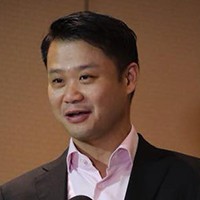
Sherwin “Win” Gatchalian was Valenzuela City’s Mayor from 2004 to 2013 and the representative of its 1st District from 2001 to 2004 and from 2013 to 2016. As Congressman, he filed House Bill No. 5905 or the Free Higher Education Act that would radically expand access to college education for millions of Filipinos. The measure eventually became known as Republic Act No. 10931 or the Universal Access to Quality Tertiary Education Act, which was signed into law in August 2017.
In the Senate, he has authored or sponsored several key measures such as the Recoverable System Loss Act, the Energy Virtual One Stop Shop (EVOSS) Act, the Philippine Innovation Act, Benham Rise Development Authority Act and the Mobile Number Portability Act. He was the former Chair of the Committee on Economic Affairs and currently sits as the Chair of the Senate Committee on Energy, where he advocates for greater competition within critical industries, efficiency of services, and lower costs to the general public. Senator Gatchalian graduated with a degree in Finance and Operations Management from Boston University in 1995.
Kentaro Doi
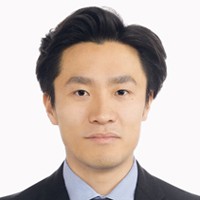
Kentaro Doi is Deputy Director of International Affairs Division, Japan Fair Trade Commission, in charge of negotiating and concluding international agreements between countries, such as Economic Partnership Agreements, Anti-monopoly Cooperation Agreements, and Inter-agency Cooperation Memorandums. He has 7+ years of experience working for the Japan Fair Trade Commission and, in the past few years, he had demonstrated expertise in competition policy-making processes relevant to digital markets, including working on Japan’s new digital platform regulation (Act on Improving Transparency and Fairness of Digital Platforms) and producing market studies reports on topics such as online shopping malls and app stores (2019), and digital advertising (2021). Before that, he was involved in competition policy-making in energy sector (2016-2017) and in antitrust investigation (2014-2016). He won the governmental scholarship and gained two masters degrees of laws in Germany, mainly focused on EU competition law/policy, data protection law, and intellectual property law (2017-2019).
Michael Schaper
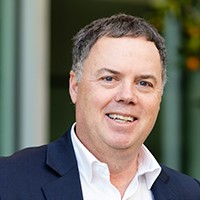
An experienced CEO, board director, regulator, and small business/economic development specialist in Australia and internationally, Michael is a Senior Visiting Fellow at the Institute of Southeast Asian Studies-Yusof Ishak Institute in Singapore. He currently chairs both the Australian government’s Shadow Economy Advisory Forum, and the self-regulatory body for Australia’s buy-now-pay-later fintech sector; he is also a member of University of Canberra governing council and the Chief Minister’s Economic Advisory Group. He served for ten years (from 2008-2018) as the full-time Deputy Chairman of the Australian Competition and Consumer Commission, with special responsibility for small business, franchising, industry associations and related matters, and established the National Small Business Commissioners’ Forum.
Ruben Maxiamo
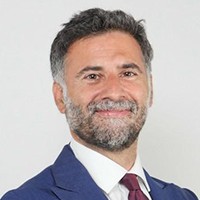
Ruben Lapa Maximiano is a Senior Competition Expert at the OECD in Paris and a lecturer at Lille Catholic University, where he teaches EU Merger Control course at Masters 2 level. At the OECD he is responsible for the work on competition policy in Asia Pacific region and coordinates the work on the Covid-19 crisis in the Competition Division.
Before joining the OECD, Mr. Maximiano worked at the European Commission for nearly 5 years, having worked mostly on merger control in several sectors and been a part of the Financial Crisis Task Force where he worked on a number of state aid cases in the banking sector. Prior to that, he worked at the Portuguese Competition Authority where he was Senior Legal Case Handler and as a Lawyer in Vieira de Almeida & Associados in Lisbon, Portugal in the Competition Law and Telecoms regulation field. He also trained at Squire, Sanders & Dempsey in Brussels. He is admitted to the Portuguese Bar. Mr. Maximiano received an LL.M. in European Law from the College of Europe, Belgium (2001).
Jesusa Joyce N. Cirunay
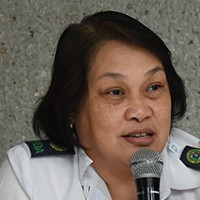
Ms. Cirunay is a Registered Pharmacist with post-graduate studies in Pharmaceutical Science. She is currently the Director IV of the Center for Drug Regulation and Research at the Food and Drug Administration Philippines. Her government service began at the Product Services Division (PSD) covering Marketing Authorizations as Pharmaceutical Researcher then as Senior Drug Evaluator including New Drug Applications and Vaccines
Before her current post, she was assigned to head several key offices of the Agency at various timelines, i.e., Field Cluster Director in various parts of the Philippines, as Head of the GMP Inspectorate; as Head of the Distribution Inspectorate and as Head of the Marketing Authorization.
Her vast experience includes international collaborations as former OIC–FDA International Affairs Office; media relations as former FDA Spokesperson; former Quality Manager for the FDA Quality Management System on ISO 9001; and on ASEAN Harmonization in the Healthcare Sector representing FDA PH.
Her publications include, among others, as lead author in several scientific articles published in peer-reviewed international journals covering pharmaceutical science, and liquid chromatography.
Looi Teck Kheong
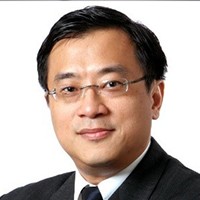
Looi Teck Kheong is the Head of Competition, Consumer Protection and Intellectual Property Regulations Division, ASEAN Secretariat. He helps implement the ASEAN Competition Action Plan 2025 and services the meetings of the ASEAN Experts Group on Competition and the ASEAN Competition Enforcement Network.
He is often invited to speak at international competition events and has spoken at the Inaugural ASEAN Heads of Competition Agencies Meeting; the 9th ASEAN Competition Conference, the launch of ASEAN-OECD’s Competitive and Neutrality Logistic Sector Country Reports; the 8th UN Review Conference on Competition and Consumer Protection; and the UNCTAD-ESCAP-ASEAN Regional Competition Dialogue to support MSMEs’ recovery post covid-19 crisis.
Mr. Looi was admitted to the Rolls of Advocate & Solicitor of Singapore and has about 30 years of professional experience in both private legal practice and as in house counsel for amongst others, the legal and tax department of Deutsche Bank AG, in their regional Head Office for the Asia Pacific Region.
He has advised governments, non-profits, global corporations, tech start-ups, businesses, MSMEs, C-suite executives in the areas of e-commerce, Fintech, RegTech, ICOs, gifting vouchers, wellness and equity investment platform, privacy, data protection, international payment systems, internet banking and dispute resolution. He was also counsel in various civil litigation and criminal cases in commercial, corporate, investment, property, contract, banking, finance, and private disputes.
Mr. Looi has a Bachelor of Law with honors and three Master’s degrees from the National University of Singapore, in Law (LLM); Public Policy (MPP) (from the school now known as the Lee Kuan Yew School of Public Policy, under the Temasek Scholarship); and Applied Economics (M. App Econs.), specializing in Economic Policy & Development. He was also a Pre-University ASEAN Scholar. Mr. Looi completed the EU Competition Law and Policy course from the Online Summer School at the College of Europe.
Chandra Setiawan
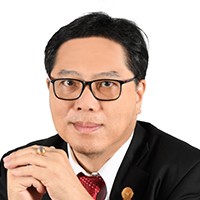
Dr. Drs. Chandra Setiawan, M.M., Ph.D. is a holder of Bachelor’s Degree in Corporate Economics from Islamic University of Indonesia, Yogyakarta. He attained his Master’s Degree in Investment & Banking from Gadjah Mada University in 1990. He continued his doctoral education at State University of Jakarta majoring in Education Management and graduated in 2001. In addition to this education, Chandra also attended doctoral education majoring in finance at the Graduate School of Management, UPM Malaysia.
Chandra was a commissioner of KPPU for period 2012-2018 and he is re-elected for the second term for period 2018-2023. He has also served as a lecturer at President University since 2012. He was entrusted to become the Rector of the President University in 2012-2016.
Yuli Wahyuningtyas
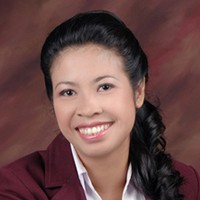
Dr. jur. Sih Yuliana Wahyuningtyas is an Associate Professor at Faculty of Law, Atma Jaya Catholic University of Indonesia (Unika Atma Jaya), with research interests in Competition Law, Data Protection, Intellectual Property Rights, and Cyber Law, as well as the intersection between those fields. Dr. Yuli earned a Doctorate in Law/Doctoral Jura (Dr. jur.) with a focus on competition law research in 2010/2011 from Ludwig-Maximilians-University, Munich, Germany, and during her promotion, she is a Visiting Researcher at the Max-Planck-Institute for Competition Law and Innovation in Munich, Germany. After returning to Indonesia in 2011 to continue her work at Unika Atma Jaya, in 2013-2015 she continued her research by pursuing a Postdoctoral program at the Center for IT and IP, KU Leuven, Leuven, Belgium with a research focus on the intersection between competition law and protection of personal data and intellectual property rights. In 2015 she returned to Indonesia and continued to teach at Atma Jaya Unika. Since June 2020, she holds the office as the Director of the Institute for Research and Community Development at Unika Atma Jaya.
George Barcelon
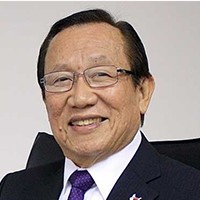
George Barcelon is President of the Philippine Chamber of Commerce and Industry (PCCI), the Philippines’ largest group of businesses. Mr. Barcelon represents the private sector in the Industry Development Council and National Competitive Council. In addition to this, he is also one of three Philippine representatives to the ASEAN Business Advisory Council (ASEAN-BAC) and the Private Sector Representative to the Legislative-Executive Development Advisory Council (LEDAC). Mr. Barcelon is the president of Integrated Computer Systems, a pioneer in computer systems and peripherals. He is also the president of several realty development companies that provide office space, commercial outlets, warehouse offices for ecozone locators and BPOs.
Alain Charise Veloso
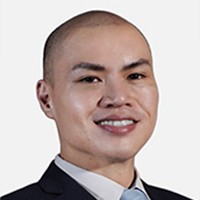
Alain Charles Veloso is a partner of Quisumbing Torres’ Corporate & Commercial / M&A Practice Group. He heads the firm’s Capital Markets Practice Group. He is also a member of the Competition Focus Group and the Technology, Media & Telecommunications and Industrials, Manufacturing & Transportation Industry Groups. He participates in the initiatives of Baker McKenzie International of which Quisumbing Torres is a member firm. He is a member of Baker McKenzie’s Asia Pacific Competition Steering Committee. He has 15 years of legal practice, advising clients with regard to their transactions in the Philippines, including private and public M&A transactions, debt, and equity capital markets transactions, and structuring and establishment of their Philippine presence.
Charles is also active in the firm’s Corporate Social Responsibility initiatives. He heads the firm’s Inclusion & Diversity and B-Green committees. He is currently a Director of the Integrated Bar of the Philippines (IBP) Makati Chapter, and currently serves as the Chairperson of its Diversity and Inclusion Committee. He has been recognized as External Counsel of the Year in Asia by The Asian-MENA In-House Community Counsels in 2019, and cited as a Next Generation Lawyer for Corporate and M&A by Legal 500 for 2017 and 2018. He was also a 2018 Bench and Bar Awardee of the Integrated Bar of the Philippines’ Leyte Chapter. He was awarded Young Lawyer of the Year by Asian Legal Business Philippine Law Awards 2020 and as a Leading Individual in Capital Markets by The Legal 500 Asia Pacific 2020 to 2022. He was awarded Client Choice Awards for Competition by Lexology 2021.
Charles studied Law at the UP College of Law (cum laude and class valedictorian) and EU Competition Law at the London School of Economics and Political Science in 2017. He is also a Certified Public Accountant.
Charles is a lecturer for the Mandatory Continuing Legal Education program on Corporate Governance and on Competition Law. He is one of the authors of The Philippine Competition Act Annotated 2021 edition. He also co-authored the Philippine chapter of Baker McKenzie’s Asia Pacific Competition Law Guide and the Global Merger Analysis Platform. He also served as resource speaker on Infrastructure and Competition Law in various local and regional seminars.
Theodoro Padilla
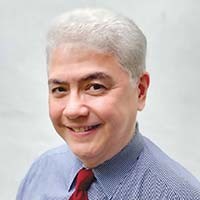
Ruben Lapa Maximiano is a Senior Competition Expert at the OECD in Paris and a lecturer at Lille Catholic University, where he teaches EU Merger Control course at Masters 2 level. At the OECD he is responsible for the work on competition policy in Asia Pacific region and coordinates the work on the Covid-19 crisis in the Competition Division.Mr. Teodoro B. Padilla is the Executive Director of the Pharmaceutical and Healthcare Association of the Philippines (PHAP), representing the research-based medicines and vaccines sector in the country. As executive director, he represents PHAP in high-level policy discussions and engagements to advance health, access to medicines and ethics. He is also a trustee of the PHAPCares Foundation, the corporate social responsibility arm of PHAP whose mandate is to make healthcare more accessible to the poor, sick and victims of disasters.
Mr. Padilla’s qualifications show a comprehensive work experience in the legislative and business sector. Prior to joining PHAP, he was the Executive Director of the Congressional Oversight Committee on Official Development Assistance (COCODA) at the Senate of the Philippines, where he directed the operations of the committee in compliance with prescribed congressional procedures. He also served as the executive director of the Congressional Oversight Committee on Comprehensive Tax Reform Program (COCCTRP).
His experience in the private sector is likewise noteworthy. Among the diverse roles he tackled were as country manager of the International Air Transportation Association, and senior management roles at various global financial institutions. He likewise served as consultant to the CEO of a major Philippine pharmaceutical company.
He has more than three decades experience in business strategy and management, with functional expertise in marketing, finance and communications. Over the course of his career he has been commended for excellent cross-cultural communication proficiency and for his ability to develop the professional growth of associates. As an advocate for corporate governance and business ethics he was recognized for his efforts at promoting APEC’s guiding principles amongst various stakeholders in the healthcare sector, a campaign that remains to this day.
Mr. Padilla is an honors graduate of Bachelor of Science in Business Administration from the University of the Philippines, and holds a Masters degree from the Kellogg School of Management, Northwestern University. He is a Fellow of the Institute of Corporate Directors and a regular contributor to BusinessWorld and abs-cbnnews.com.
Before joining the OECD, Mr. Maximiano worked at the European Commission for nearly 5 years, having worked mostly on merger control in several sectors and been a part of the Financial Crisis Task Force where he worked on a number of state aid cases in the banking sector. Prior to that, he worked at the Portuguese Competition Authority where he was Senior Legal Case Handler and as a Lawyer in Vieira de Almeida & Associados in Lisbon, Portugal in the Competition Law and Telecoms regulation field. He also trained at Squire, Sanders & Dempsey in Brussels. He is admitted to the Portuguese Bar. Mr. Maximiano received an LL.M. in European Law from the College of Europe, Belgium (2001).
Thuta Aung
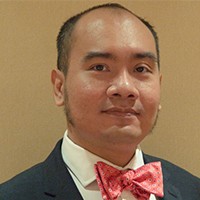
Commissioner, Myanmar Competition Commissioner
PLENARY SESSION 4
THE COMPETITION LANDSCAPE AND DIRECTION OF REGULATION IN DIGITAL MARKETS
PARALLEL SESSION 1
COMPETITION ENFORCEMENT AND INVESTIGATIONS IN THE NEW NORMAL (SPECIAL CLOSED SESSION)
PARALLEL SESSION 2
COMPETITION ECONOMICS FOR DEVELOPING COUNTRIES: CHALLENGES AND OPPORTUNITIES
Johannes Benjamin Bernabe
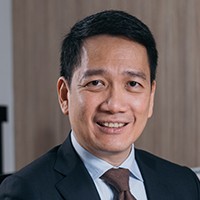
Commissioner Johannes Bernabe was appointed to the Philippine Competition Commission upon its establishment in 2016. Prior to his appointment, Mr. Bernabe advised Congress in the drafting of the Philippine Competition Act and other major economic legislation. He taught/ the pioneering course on Competition Law in the University of the Philippines and has likewise/ guest-lectured at Harvard Law School on Competition and on International Trade Law.
Mr. Bernabe was a Senior Fellow at the Geneva-based policy think-tank, the International Centre for Trade and Sustainable Development.
Before assuming his post as Commissioner, he was also a practicing lawyer, and was a Partner with the firm Ocampo Manalo Bernabe, specializing in corporate and commercial law.
Before these, Mr. Bernabe was a trade negotiator and legal adviser for the Philippines at the World Trade Organization in Geneva. He has advised and worked with governments and business groups in Asia, Africa and the Middle East on issues covering WTO issues, free trade agreements, and other international trade law issues.
Mr. Bernabe graduated cum laude with a degree in Economics and subsequently Law at the University of the Philippines. He took postgraduate studies in Law as a Chevening Fellow at Queen Mary College-University of London, then Public International Trade Law at the International Development Law Institute in Sydney, and Competition Law at King’s College-University of London.
Orlando Polinar
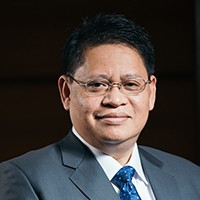
Atty. Orlando Polinar is the Director of PCC’s Competition Enforcement office. He is a lawyer with an extensive experience in managing and conducting litigation and legal corporate work. Prior to joining the PCC, he served as Vice President for Legal of Pag-IBIG Fund and Government Service and Insurance System (GSIS), two of the country’s largest government-owned and controlled corporations. He obtained his law and master’s degree from the University of the Philippines.
Tristan A. Canare
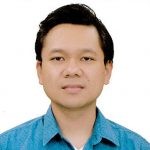
Tristan Canare is the Chief of the Economic Investigation Division of the Economics Office of the Philippine Competition Commission, a position he held only since March this year. He is also a Lecturer at the Ateneo de Manila University Economics Department. Previously, he was the Associate Director and Senior Economist at the Asian Institute of Management Policy Center, and he worked or consulted for the World Bank, Asian Development Bank, Ateneo School of Government, and other development research institutions. He has published on such topics as decentralization, local public finance, development economics, political economy, and corruption, among others. He holds a bachelor’s degree in Economics from the University of the Philippines – Los Baños, master’s degrees from the University of the Philippines School of Economics, and a Ph.D. in Economics from the Ateneo de Manila University.
Herbert Fung
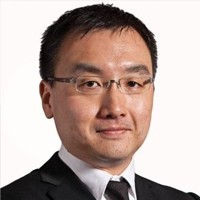
Senior Director, Business & Economics Division, Chief Data Officer, Competition and Consumer Commission of Singapore
Chomkwan Ide
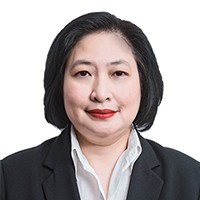
Chomkwan Ide is the current Director of Fact-Finding Division, Trade Competition Commission of Thailand (TCCT). After graduating master’s degree from the Laval University (Canada), she joined the Office of the Ombudsman of Thailand as an investigator, especially in case of complainant who affected by grievance or unfairness arisen from non-compliance with the law of the local administrator. After serving as investigation officer from 2015-2019, Ms. Ide took the Director position on April 2020.
Theerewat Thipparat
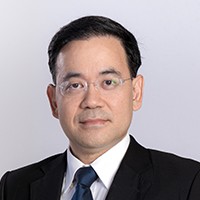
Mr. Theerawat Thipparat serves in multiple capacities at the Trade Competition Commission Thailand (TCCT). He is Director of Mergers Review Division and Acting Director of the Market Structure for Consumer Products Division; Market Structure for Commodities Division; and Market Structure for Services Division.
His primary responsibilities revolve around Thai Competition Law mainly merger control, which entails investigating, assessing, and reviewing potential competition and merger cases to prevent anticompetitive mergers and control market structure to allow free and fair trade. He participates in a number of merger investigation projects spanning a variety of industries, including retail business, package delivery services business, automotive parts business.
From aforementioned responsibilities, he also conducts market research on a wide range of products and services such as digital economy, logistic platform, aging society products, etc., with the goal of initiating Thailand’s competition policy.
He worked for the Public Debt Management Office at the Ministry of Finance for 16 years where he was Director of the Government Loans Division. During his tenure at the Ministry of Finance, he worked with multilateral agencies such as the Japan International Cooperation Agency (JICA) on the Industrial Ring Road project and the World Bank and the Asian Development Bank (ADB) on a Highway Management Project.
Julian Wright

Dr. Julian Wright is the Lim Chong Yah Professor in the Department of Economics at the National University of Singapore. He has a PhD in Economics from Stanford Economics. His research focuses on competition law, regulatory and strategy issues relating to multi-sided platforms, with special interest in payment platforms, marketplaces, and search and booking sites. He has published numerous journal articles and book chapters, including in the leading economics journals such as the American Economic Review, Management Science, RAND Journal of Economics, Quarterly Journal of Economics, and Review of Economic Studies. He serves as co-Editor of the International Journal of Industrial Organization. His work on multi-sided platforms is widely cited, both in academia and by policymakers. He has been invited to present this work at central banks, competition authorities, the World Economic Forum, and other major international conferences. Professor Wright has also provided expert advice to major international corporations such as Facebook, MasterCard, Telstra, and Visa. In Singapore he has provided consulting services for Drew and Napier, the Land Transport Authority, and the Ministry of Transport. He is a member of the Singapore Competition Appeal Board, the EMA’s Licensing, Tariffs & Competition Committee, NUS Alumni Ventures, and has been listed in the Who’s Who Legal for Competition Economists since 2011. Along with co-author Dr Andrei Hagiu, he publishes a biweekly newsletter on digital platforms: https://platformchronicles.substack.com/
Mohd Hasbullah Mohamad Faudzi
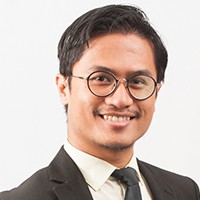
Hasbullah is currently Senior Assistant Director in the Investigation and Enforcement Division of the Malaysia Competition Commission (MyCC). Hasbullah’s duties include carrying out assessments and investigations on a full range of competition issues including anti-competitive practices and abuse of dominance. He has been involved in various investigations including case on cartels, bid rigging and abuse of dominance. Prior to joining the Investigation and Enforcement Division, he was the Assistant Director in the Business and Economics Division of MyCC and heavily involved in conducting market review for pharmaceutical and building materials industry.
He obtained his Bachelor of Economics (Hons) and Master of Economics from the International Islamic University Malaysia (IIUM).
Ismail Faruqui Abdullah
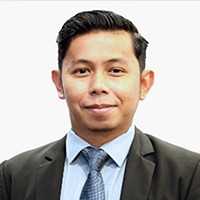
Ismail Faruqi is Acting Head of the Business and Economics Division at Malaysia Competition Commission (MyCC). Aside from leading the Business and Economics Department to conduct market studies, evaluating the exemption applications, assessing Competition Cases as well as providing economic research and advice to the Government. He is also taking a leadership role as a pioneer for Mergers and Acquisition Team as well as overseeing and managing the amendment of the Competition Act 2010. Ismail Faruqi starts his career as an Economic Researcher at the Economic Planning Unit, Prime Minister Department. Prior to joining the Malaysia Competition Commission, he was an Economist at CIMB Bank Malaysia. Ismail Faruqi recently completed his Competition Summer Course from Colleague of Europe, Bruges Belgium and graduated from the National University of Malaysia with a Master’s Degree in Econometrics and Degree in International Economics and Trade.
Pierre Horna
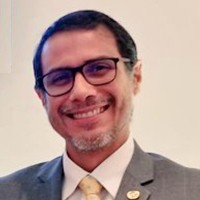
Legal Affairs Officer
Competition and Consumer Policies Branch
United Nations Conference on Trade and Development (UNCTAD)
Kenneth Tanate
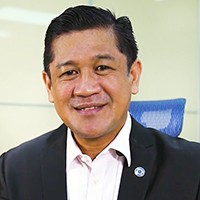
Executive Director Kenneth V. Tanate has been with the government service for more than thirty (30) years. Prior to joining the Philippine Competition Commission, he served as Assistant Director-General of the National Economic Development Authority. Executive Director Tanate took his Bachelor of Science in Electronics and Communications Engineering at the University of San Carlos in Cebu City. He holds a Postgraduate Diploma in Engineering and Technology Management at the University of Queensland in Australia. He finished his Master’s in Environmental Sciences and PhD in Policy and Planning Sciences at the University of Tsukuba in Japan.
In 2013, he was one of the pioneering graduates of the Master’s in Development Management-Public Management Development Program (Senior Executive Class) facilitated by the Development Academy of the Philippines wherein he was awarded with the Most Innovative Re-entry Project.
Deswin Nur
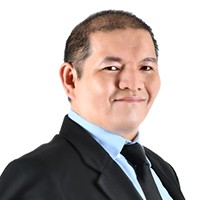
Deswin Nur is the Bureau Head for Public Relations and Cooperation at the Indonesia Competition Commission (KPPU) where he deals with internal and external communication strategies for the Commission, as well as managing domestic and international cooperation. He also sits as Chair of the ASEAN Experts Group on Competition (AEGC) Meeting since KPPU’s Chairmanship at AEGC in 2021.
He also led several international trade negotiations with competition-related issues.
Deswin has been with KPPU for more than 18 (eighteen) years and has extensive experience in many fields, including competition policy analysis, case investigation, and merger review. Prior to his current post, he was the former Director of Mergers where he introduced the recent changes in the rules of Merger Regulation in 2019.
He graduated with a master’s degree in Finance from the University of Indonesia and has published several articles which can be read at this GoogleScholar page. His full profile is available at https://www.linkedin.com/in/deswinnur/.
PRESENTATIONS
KEYNOTE PRESENTATION
ROBUST MERGER CONTROL FOR INCLUSIVE, DYNAMIC,
AND RESILIENT MARKETS
PLENARY SESSION 1
ROBUST MERGER CONTROL FOR INCLUSIVE, DYNAMIC,
AND RESILIENT MARKETS
PLENARY SESSION 2
REINFORCING ANTI-CARTEL AND ABUSE OF DOMINANT POSITION REGIMES TO BUILD BACK BETTER ECONOMIES
Jesusa Joyce N. Cirunay
Download (Plenary-2-Cirunay-FDA-Regulatory-updates.pdf)PLENARY SESSION 3
COMPETITION POLICY AND MSMEs:
ENSURING INCLUSIVE RECOVERY
PLENARY SESSION 4
THE COMPETITION LANDSCAPE AND DIRECTION OF REGULATION IN DIGITAL MARKETS
PARALLEL SESSION 1
COMPETITION ENFORCEMENT AND INVESTIGATIONS IN THE NEW NORMAL (SPECIAL CLOSED SESSION)
Johannes Benjamin Bernabe
Herbert Fung
Julian Wright
Pierre Horna
PARALLEL SESSION 2
COMPETITION ECONOMICS FOR DEVELOPING COUNTRIES: CHALLENGES AND OPPORTUNITIES
For more information, you may download our publications below.


